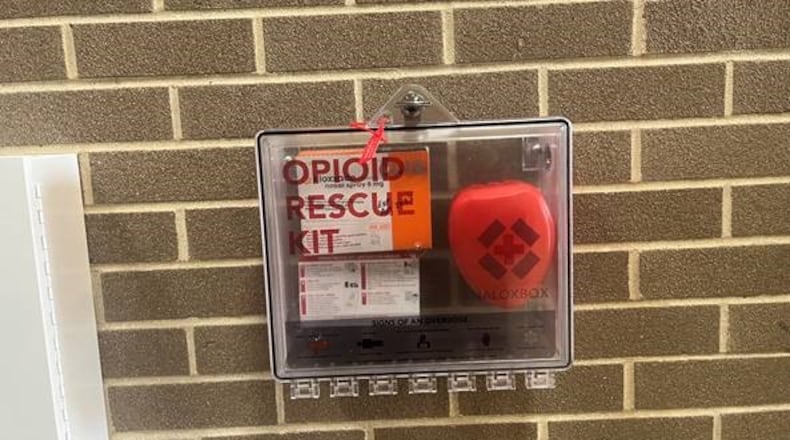“With the increase of fentanyl overdoses, Clark State wanted to be proactive in the approach to handling these situations should they arise on campus,” he said, noting the college’s Trauma Informed Practices efforts.
The college implemented the Campus Opioid Response Education (CORE) that includes training for Opioid Rescue Kits.
CORE was established to create a culture of safety, connectivity and empowerment for students, staff and faculty while on campus.
This program includes the use of Opioid Rescue Kits, which are now located next to the Automated External Defibrillators (AEDs) on campus. They went active the week of Dec. 12 at the Springfield campus locations and will soon be available at other locations.
The opioid kits were funded by Project DAWN (Deaths Avoided With Naloxone), which is a network of opioid overdose education and naloxone distribution programs coordinated by the Ohio Department of Health. The kits are mandated in 17 states across the U.S., though Ohio doesn’t have a law mandating them.
Clark State is the only known school in Clark County or surrounding area that has implemented this program, Lemen said.
In September 2020, the college received $1,587,096 from the Title III Strengthening Institutions Program grant to implement trauma-informed practices.
The goal of the college’s Trauma Informed Practices initiative is to increase enrollment, student success, retention and completion by supporting students holistically to reduce stress and improve mental health.
The voluntary CORE opioid rescue kit training is now available to students, faculty and staff who are interested. It will be held at the main campus in Springfield.
For more information or to schedule a training, contact JJ Peck, peer recovery support coordinator, at peckj@clarkstate.edu.
About the Author

